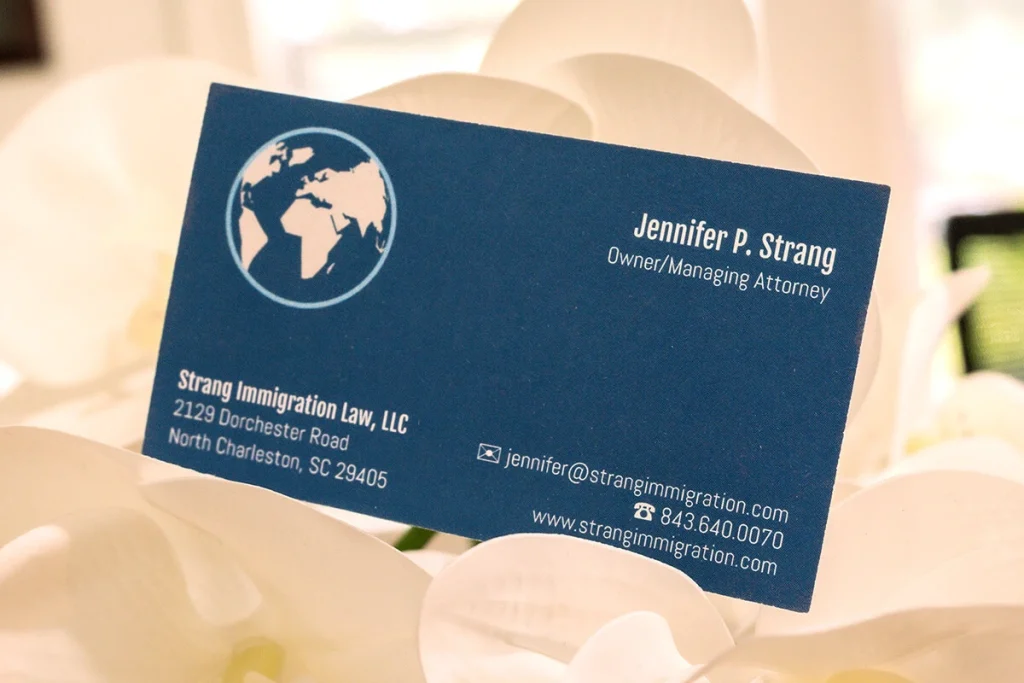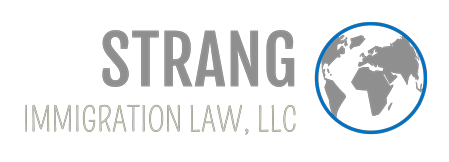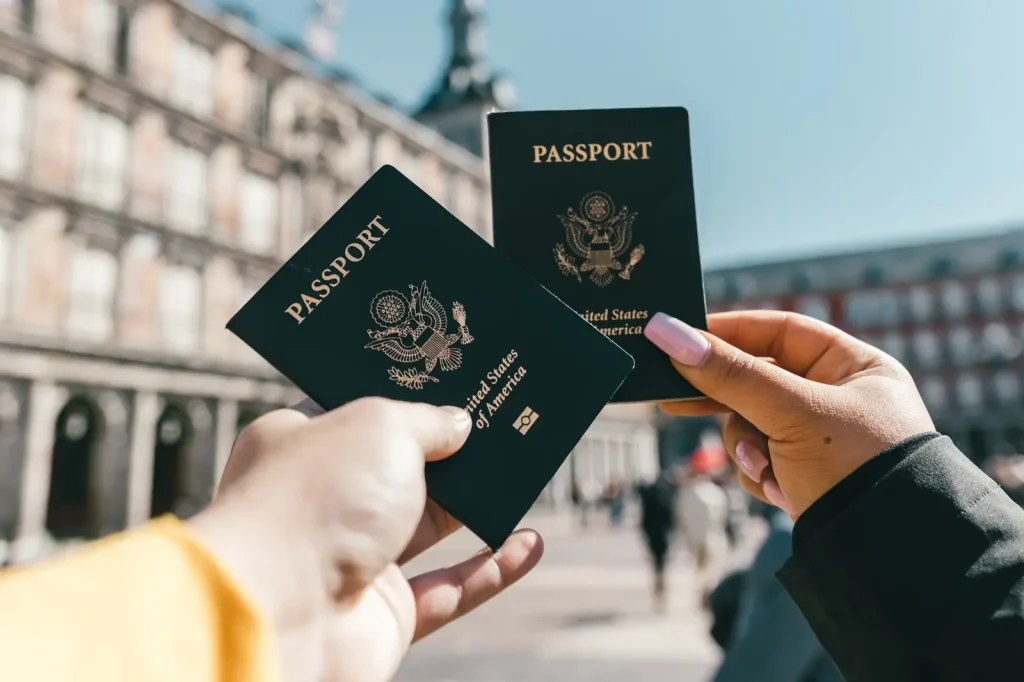
Immigrant Visa for U.S. Citizen Spouses: Common Denial Reasons Explained
August 14, 2025
Understanding the Affidavit of Support (Form i-864): Financial Requirements for Sponsors
August 21, 2025
Immigrant Visa for U.S. Citizen Spouses: Common Denial Reasons Explained
August 14, 2025
Understanding the Affidavit of Support (Form i-864): Financial Requirements for Sponsors
August 21, 2025
Adjustment of Status vs. Consular Processing: Which Is Right for You?
Applying for a green card is a big step—and one that comes with a crucial choice. You’ll need to decide between two paths: Adjustment of Status or Consular Processing. Each has its own requirements, timelines, and potential pitfalls. Choose wrong, and you could face months of delays or legal complications that disrupt your plans entirely.
The right path depends on factors like where you are, how you entered the U.S., and your current immigration status. Understanding the differences now can save you time, money, and unnecessary stress later.
If you’re unsure which option is best for you, our team at Strang Immigration can guide you through the process from start to finish—so you can move forward with confidence.
What Is Adjustment of Status?
Adjustment of Status (AOS) allows you to apply for a green card while remaining in the United States. Instead of traveling abroad for your immigration interview, you complete the entire process through U.S. Citizenship and Immigration Services (USCIS) within U.S. borders.
To qualify for Adjustment of Status, you must be physically present in the United States when you file your Form I-485. You also need to meet specific eligibility requirements based on how you entered the country and your current legal status.
Common situations where Adjustment of Status applies include:
- Spouses of U.S. citizens who entered on tourist, student, or work visas
- Students transitioning from F-1 status to permanent residence
- Workers changing from H-1B or other employment visas
- Some individuals who overstayed their visas but qualify for exceptions
The key requirement is lawful entry into the United States. Even if your current status has expired, you may still qualify for AOS if you entered legally and meet other criteria.

What Is Consular Processing?
Consular Processing requires you to apply for your green card through a U.S. embassy or consulate in your home country or country of residence. This path involves the National Visa Center (NVC) coordinating with the consular office to schedule your immigration interview abroad.
This process applies to individuals who:
- Live outside the United States
- Cannot qualify for Adjustment of Status due to their entry method or immigration history
- Choose consular processing even when AOS is available
Typical consular processing situations include:
- Family members abroad waiting for approved petitions
- Individuals who entered the U.S. without inspection
- People with complex immigration histories that make AOS risky
- Applicants who prefer the potentially faster consular timeline
You must attend your immigration interview at the designated U.S. consulate, where a consular officer will make the final decision on your green card application.
At a Glance: Key Differences Between Adjustment of Status And Consular Processing
Understanding the fundamental differences between these processes helps you evaluate which fits your situation:
Location Requirements
Adjustment of Status keeps you in the United States throughout the process. Consular Processing requires you to be outside the U.S. for your interview and may require you to remain abroad during processing.
Processing Agencies
AOS cases go through USCIS field offices. Consular processing involves both the National Visa Center and U.S. consulates abroad, creating additional coordination steps.
Timeline Variations
Processing times vary significantly based on your location, case complexity, and current USCIS or consular workloads. Neither process is consistently faster than the other.
Interview Location
AOS interviews occur at USCIS field offices in your area. Consular interviews happen at U.S. embassies or consulates in your home country.
Travel Restrictions
During AOS processing, leaving the U.S. without advance parole can abandon your application. Consular processing generally allows more travel flexibility before your interview.
Cost Differences
Filing fees, medical exam costs, and travel expenses vary between the two processes. Consider total costs, including potential lost income from extended separations.

Pros and Cons of Adjustment of Status
Advantages if you apply for Adjustment of Status:
Staying in the United States during processing eliminates the uncertainty of extended family separation. You maintain your established life, work, and community connections while your case moves forward.
Work authorization becomes available relatively quickly through Form I-765, typically within 90 to 120 days of filing. This employment authorization document allows you to work for any employer while your green card processes.
Travel authorization through advance parole (Form I-131) lets you leave and return to the United States during processing. This flexibility helps you handle emergencies or maintain international business relationships.
You avoid the risks associated with traveling abroad for consular interviews, including potential delays or complications at U.S. consulates.
Advantages if you apply for Adjustment of Status:
Staying in the United States during processing eliminates the uncertainty of extended family separation. You maintain your established life, work, and community connections while your case moves forward.
Work authorization becomes available relatively quickly through Form I-765, typically within 90 to 120 days of filing. This employment authorization document allows you to work for any employer while your green card processes.
Travel authorization through advance parole (Form I-131) lets you leave and return to the United States during processing. This flexibility helps you handle emergencies or maintain international business relationships.
You avoid the risks associated with traveling abroad for consular interviews, including potential delays or complications at U.S. consulates.

Pros and Cons of Consular Processing
Advantages of Undergoing Consular Processing:
Consular interviews often occur more quickly than AOS interviews, particularly at consulates with lighter caseloads. Some applicants receive interview appointments within months of case completion.
The process works well for applicants already living abroad who do not need to maintain U.S. status or employment.
Consular officers sometimes have more flexibility in evaluating complex cases, particularly regarding waivers and discretionary decisions.
Medical exams and document requirements may be less expensive in some countries compared to U.S. costs.
Disadvantages of Consular Processing:
Extended family separation creates emotional and practical challenges, especially for couples with children or shared financial obligations.
Travel costs for interviews, potential follow-up appointments, and relocation expenses add up quickly.
Limited appeal rights mean consular denials are harder to challenge compared to USCIS decisions. Administrative processing delays can extend cases indefinitely without clear resolution timelines.
You cannot work in the United States during processing, potentially creating significant financial hardship for families depending on your income.
How to Know Which Option (Adjustment of Status or Consular Processing) Applies to You
Ultimately, there are several factors for the choice between AOS and consular processing:
Current Location and Legal Status
If you are in the United States on a valid visa or valid status, AOS may be available. However, physical presence alone does not guarantee eligibility. Your entry method, current status, and immigration history all matter.
Entry Method and Immigration History
Lawful entry is typically required for AOS eligibility. If you entered without inspection or violated your status in specific ways, consular processing may be your only option.
Visa overstays create particular complexity. Immediate relatives of U.S. citizens can sometimes adjust status despite overstays, but other categories cannot.
Family Circumstances
Consider where your spouse or family members are located. If your spouse is abroad and cannot travel to the United States, consular processing may be more practical regardless of your technical eligibility for AOS.
Risk Tolerance
Some cases involve risks under either process. Individuals with prior immigration violations, criminal history, or complex situations should carefully evaluate which process offers the better strategic outcome.

Common Mistakes to Avoid with Consular Processing and Adjustment of Status
Filing AOS for Permanent Residency Without Proper Eligibility
Many applicants assume physical presence in the United States automatically qualifies them for Adjustment of Status. Improper AOS applications can lead to removal proceedings and permanent bars to future immigration benefits.
Ignoring Unlawful Presence Consequences
Visa overstays create unlawful presence that may trigger bars to reentry. Some applicants incorrectly assume consular processing eliminates these consequences. Others fail to realize that certain overstays do not disqualify AOS applications.
Traveling During AOS Without Authorization
Leaving the United States during Adjustment of Status processing without advance parole automatically abandons your application. This mistake is common and completely avoidable with proper planning.
Misunderstanding Processing Fees and Processing Times
Neither AOS nor consular processing is consistently faster. Processing times vary based on field office, consulate, case complexity, and current workloads. Making decisions based on outdated processing time information leads to poor strategic choices.
Frequently Asked Questions About Consular Processing or Adjustment of Status
Can I choose either option if both are available?
Sometimes yes, but strategic considerations should drive your choice rather than personal preference alone. Each path has different risks, benefits, and requirements that may make one clearly superior for your situation. It's best to check if you are eligible for adjustment of status vs consular processing with a trusted immigration attorney.
Is one process faster than the other?
Times for the visa process fluctuate constantly based on location and caseload. Currently faster processing at one location may reverse by the time your case is ready. Focus on eligibility and strategic advantages rather than estimated timelines of the application process.
What happens if I choose the wrong process?
The consequences on your visa application depend on the specific error. AOS applications filed without proper eligibility can trigger removal proceedings. Consular processing mistakes typically result in administrative delays or denials with fewer immediate consequences. Again, always consult with a trusted immigration lawyer so you can feel confident about your immigrant petition.
Can I switch from consular processing to adjustment of status or vice versa?
Limited switching is possible in some cases, but it typically requires starting over with new applications and fees. Switches also depend on eligibility for the alternative process.
Can undocumented immigrants adjust status?
Generally no, with important exceptions. Immediate relatives of U.S. citizens (spouses, parents, unmarried children under 21) may adjust status despite unlawful entry or overstays. Other categories typically cannot.

Making the Right Choice for Your Future
Your decision between Adjustment of Status and Consular Processing will affect your family's timeline, costs, and stress levels for months or years to come. The choice depends on your current location, immigration status, entry history, and family circumstances.
Neither option is universally better. What matters is identifying which process aligns with your eligibility requirements and strategic goals. Accurate evaluation upfront prevents delays, denials, and complications that can derail your immigration plans.
The immigration system does not offer second chances for many mistakes. Getting it right the first time protects your investment of time, money, and emotional energy in pursuing your American dream.
At Strang Immigration, we help families navigate these complex decisions with honest, detailed analysis of your specific situation. Our experienced attorneys evaluate your eligibility, identify potential risks, and develop strategies that maximize your chances of success while minimizing delays and complications.
Contact us today for a consultation to discuss your green card options and determine the best path forward for your family's immigration goals.
ABOUT US

We are dedicated to protecting your legal rights at every stage of the process. Discover for yourself how our immigration attorneys can help you obtain a successful outcome



